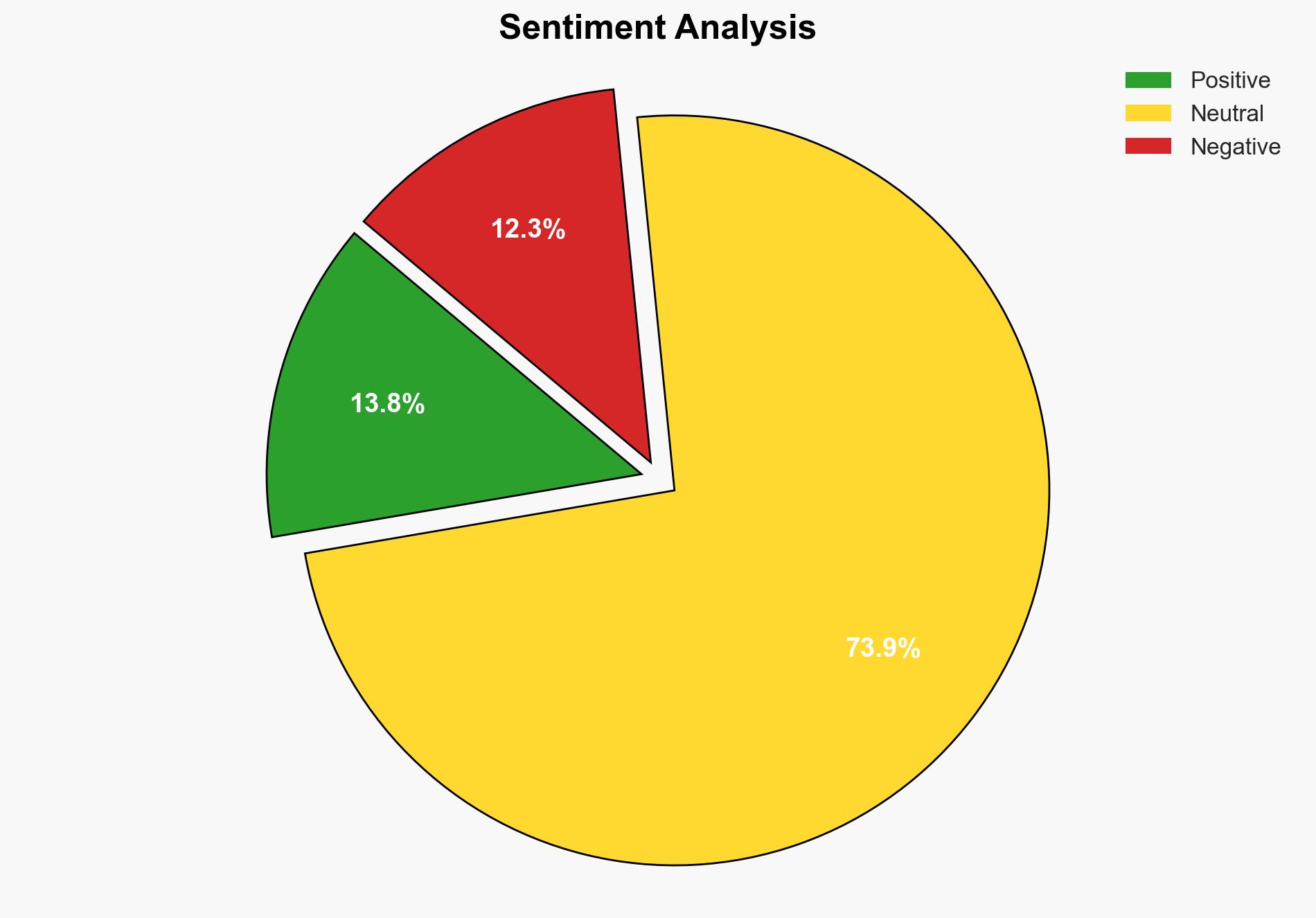Foreign Minister Tsahkna in Brussels We need to increase pressure on Russia to achieve a lasting peace – Globalsecurity.org
Published on: 2025-03-19
Intelligence Report: Foreign Minister Tsahkna in Brussels – Increasing Pressure on Russia for Lasting Peace
1. BLUF (Bottom Line Up Front)
Foreign Minister Tsahkna attended a European Union Foreign Affairs Council meeting in Brussels, emphasizing the need to increase pressure on Russia to achieve lasting peace. The discussions focused on military and economic strategies to support Ukraine and the mobilization of frozen Russian assets. Tsahkna highlighted the importance of swift EU action to prevent the return of these assets to Russia. Additionally, Tsahkna participated in a donor conference for Syria, announcing Estonia’s support for education and humanitarian aid.
2. Detailed Analysis
The following structured analytic techniques have been applied for this analysis:
General Analysis
Event Overview: Foreign Minister Tsahkna’s participation in the EU Foreign Affairs Council and the donor conference for Syria underscores Estonia’s active role in international diplomacy. The focus on increasing pressure on Russia aligns with broader EU strategies to support Ukraine amidst ongoing conflict.
Risks and Implications: The continued aggression by Russia in Ukraine poses significant risks to regional stability. The potential opposition within the EU regarding sanctions and asset mobilization could hinder collective efforts. The humanitarian situation in Syria remains dire, with millions requiring assistance, highlighting the need for sustained international support.
3. Implications and Strategic Risks
Regional Stability: The ongoing conflict in Ukraine and the EU’s response could lead to further geopolitical tensions. The mobilization of frozen Russian assets is a contentious issue that may affect EU unity.
Economic Interests: The economic pressure on Russia, including sanctions and asset freezes, could have broader implications for EU-Russia trade relations. The humanitarian crisis in Syria continues to strain resources and requires coordinated international efforts.
4. Recommendations and Outlook
Recommendations:
- Enhance diplomatic efforts within the EU to ensure consensus on sanctions and asset mobilization against Russia.
- Increase support for Ukraine through military and economic assistance to counter Russian aggression.
- Strengthen humanitarian aid initiatives for Syria, focusing on education and essential services.
Outlook:
Best-case Scenario: Unified EU action leads to increased pressure on Russia, resulting in a de-escalation of the conflict in Ukraine and progress towards peace.
Worst-case Scenario: Continued EU division on sanctions and asset mobilization weakens collective efforts, prolonging the conflict and exacerbating regional instability.
Most Likely Outcome: Incremental progress in EU strategies to support Ukraine and manage the humanitarian crisis in Syria, with ongoing challenges in achieving consensus on asset mobilization.
5. Key Individuals and Entities
Tsahkna – Attended EU Foreign Affairs Council meeting and donor conference for Syria.
Sybiha – Provided an overview of the situation in Ukraine via video conference.
Kos – Engaged in discussions on Ukraine’s path to EU membership.
Szlapka – Participated in bilateral meetings regarding European affairs.
Shaibani – Represented Syria at the donor conference.





